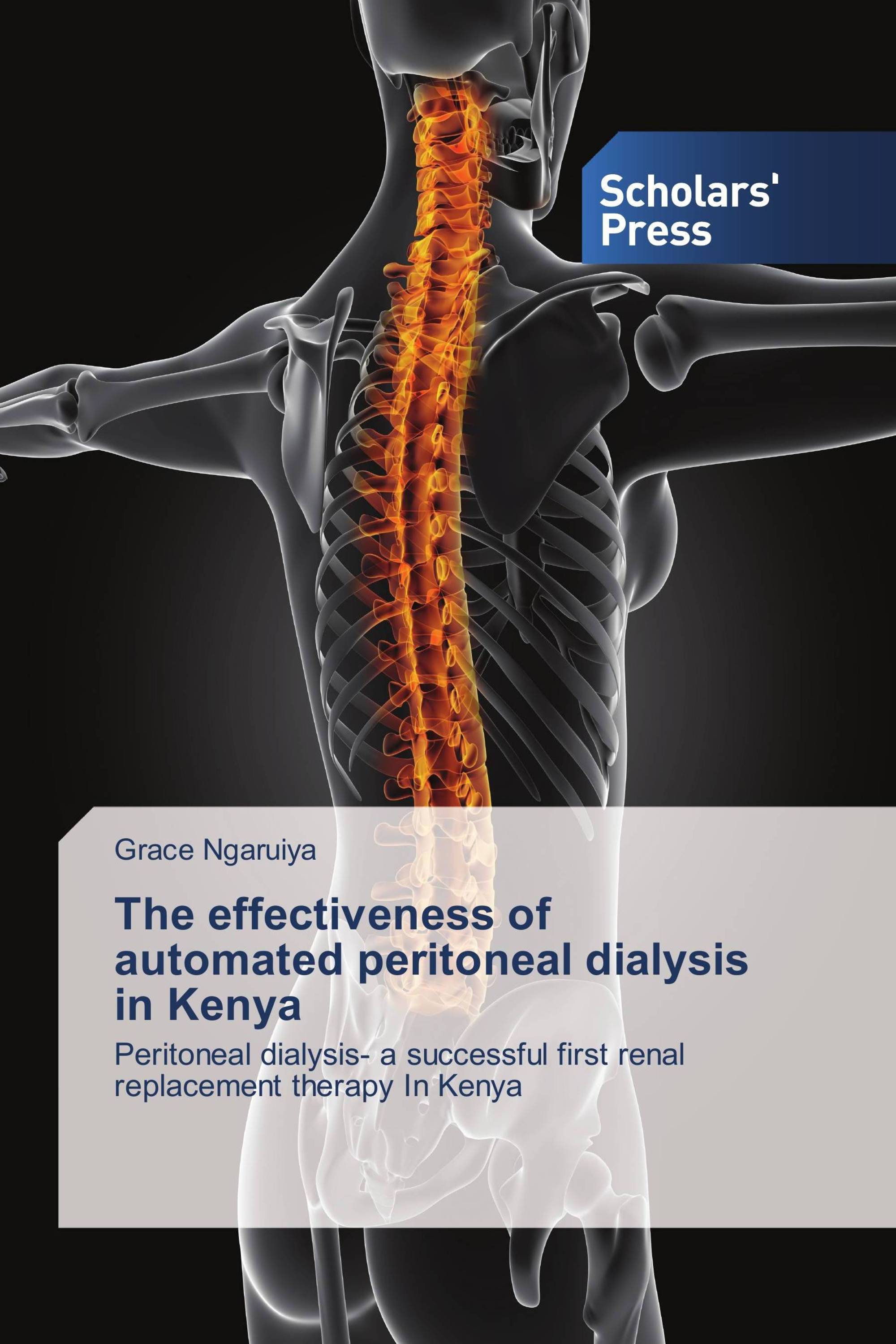The effectiveness of automated peritoneal dialysis in Kenya
Peritoneal dialysis- a successful first renal replacement therapy In Kenya
€ 59,90
Background: Automated peritoneal dialysis (APD) is peritoneal dialysis (PD) using cycler machines which can deliver predetermined volumes of dialysate into the peritoneal cavity and then drain it after a programmed dwell time. Anochie and eke (2006) reported that one of the advantages of APD is adequacy of dialysis. Objective: To determine the effectiveness of APD in the management of acute renal failure (ARF) in Kenya. Design: A retrospective cohort study Setting:Setting: Kenyatta National Hospital (KNH), Gertrude children’s Hospital, Aga khan hospital Nairobi, Mater hospital and Nairobi west Hospital.Subjects: The study population was children and adults with ARF who were put on APD from may 2006 –may 2010. Results: The mean Serum Creatinine, Blood Urea Nitrogen (BUN), Serum Potassium prior to APD was comparatively higher than the mean on APD discontinuation, discharge or death. The mean 24-hour urine output prior to APD was 100.8 and after APD discontinuation was 482.5 which were quite significant. The mortality rate was 37% (n=13) while survival rate was 63% (n=22) where patients were treated and discharged.
Book Details: |
|
|
ISBN-13: |
978-3-639-66788-2 |
|
ISBN-10: |
3639667883 |
|
EAN: |
9783639667882 |
|
Book language: |
English |
|
By (author) : |
Grace Ngaruiya |
|
Number of pages: |
96 |
|
Published on: |
2015-01-07 |
|
Category: |
Medicine |
